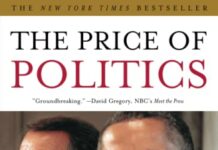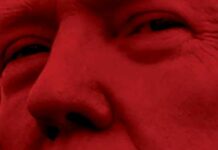
Ebook Info
- Published: 2020
- Number of pages: 466 pages
- Format: PDF
- File Size: 32.36 MB
- Authors: Bob Woodward
Description
Rage is an unprecedented and intimate tour de force of new reporting on the Trump presidency facing a global pandemic, economic disaster and racial unrest.Woodward, the #1 international bestselling author of Fear: Trump in the White House, has uncovered the precise moment the president was warned that the Covid-19 epidemic would be the biggest national security threat to his presidency. In dramatic detail, Woodward takes readers into the Oval Office as Trump’s head pops up when he is told in January 2020 that the pandemic could reach the scale of the 1918 Spanish Flu that killed 675,000 Americans. In 17 on-the-record interviews with Woodward over seven volatile months—an utterly vivid window into Trump’s mind—the president provides a self-portrait that is part denial and part combative interchange mixed with surprising moments of doubt as he glimpses the perils in the presidency and what he calls the “dynamite behind every door.” At key decision points, Rage shows how Trump’s responses to the crises of 2020 were rooted in the instincts, habits and style he developed during his first three years as president. Revisiting the earliest days of the Trump presidency, Rage reveals how Secretary of Defense James Mattis, Secretary of State Rex Tillerson and Director of National Intelligence Dan Coats struggled to keep the country safe as the president dismantled any semblance of collegial national security decision making. Rage draws from hundreds of hours of interviews with firsthand witnesses as well as participants’ notes, emails, diaries, calendars and confidential documents. Woodward obtained 25 never-seen personal letters exchanged between Trump and North Korean leader Kim Jong Un, who describes the bond between the two leaders as out of a “fantasy film.” Trump insists to Woodward he will triumph over Covid-19 and the economic calamity. “Don’t worry about it, Bob. Okay?” Trump told the author in July. “Don’t worry about it. We’ll get to do another book. You’ll find I was right.”
User’s Reviews
Reviews from Amazon users which were colected at the time this book was published on the website:
⭐The book entitled “Rage” by Bob Woodward was a strikingly balanced review of Trump’s presidency. It insightfully shows many of Trumps strengths and delves into the good or some might say the great things accomplished without shying away from his failures and shortcomings. In the beginning, Woodward, the author sets the tone by stating: that his assistants “Evelyn M. Duffy … insisted that everyone in this book get the fairest treatment possible, including President Trump.” And that “Steve Reilly … insists on verification for everything; no fact or nuance goes unchecked.”The book is well documented and very scholarly as well as quite readable. This book will have appeal to Trump supporters because it showcases some of his political savvy but because it highlights some of his ugly actions, those politicians and voters who oppose Trump’s actions and behaviors as well as journalists would do well to read and study this book. Much of the book contains material that has made the news and is well known and understood but portions offer excellent examples of how his distortions win the day for him. His son-in-law gives great insight about how he operates … for example, no deal is completed until the contract is signed and show 4 characteristics that define Trump to a “T” Woodward reports: “Pottinger had lived in China seven years and been a Wall Street Journal reporter there during the SARS outbreak. A China scholar, he spoke fluent Mandarin. … Pottinger knew firsthand that the Chinese were masters at concealing trouble and covering it up.” Moreover, “The Chinese had stonewalled, refusing to cooperate and share samples of the virus as required by international agreement. … With SARS the Chinese had egregiously concealed the outbreak of a dangerous new infectious disease for three months.” And ““How concerned are you” about coronavirus? Fox’s Sean Hannity asked Trump on February 2 “We pretty much shut it down coming in from China,” Trump said.” Woodward goes on to state: “in an interview with President Trump on March 19, … “I wanted to always play it down,” Trump told me. “I still like playing it down, because I don’t want to create a panic.” … “It goes through air,” Trump said. “That’s always tougher than the touch. You don’t have to touch things. Right? But the air, you just breathe the air and that’s how it’s passed. And so that’s a very tricky one. That’s a very delicate one. It’s also more deadly than even your strenuous flus.”” Woodward shares the story: “In private conversation with the president, Graham repeatedly urged Trump to let Mueller’s investigation take its course. If Trump was being honest with the country and had done nothing wrong, Graham argued, he should let the investigation go forward.“I believe you,” Graham replied. “Because you can’t work with your own government. Why should you be working with the Russian government?” Trump laughed. “Yeah, that’s true,” he said.” Woodward reports: “Redfield had 23,000 people, including contractors, working for him all over the world, compared to Fauci’s 2,000.He treated the information out of China with urgency. The CDC’s first formal report, filed the next day despite the federal holiday, is a remarkably detailed three-page document” And “On January 2, Redfield shared his concerns with the National Security Council’s biodefense directorate, which reported to Pottinger and O’Brien.” And “Redfield again spoke with Gao. He reported to O’Brien and Pottinger. The call was both troubling and bizarre. China was stonewalling.” Woodward goes on to state “The January 8 Situational Report noted that … Thailand and Vietnam had been added to the list of countries conducting border screening of people from Wuhan, …” And “On January 10, Chinese scientists published the genome of the virus online, giving international scientists their first glimpse of the new coronavirus.” The author states: “An increasing number of countries had closed their borders to visitors who had been to China. … The United States, however, was still open to Chinese travel. … So at Trump’s next PDB, January 28, O’Brien issued his declaration that the virus would be “the biggest national security threat you face in your presidency,” and Pottinger backed him up …” Woodward goes on to say “on February 9, Fauci, Redfield and other members of the Coronavirus Task Force took their seats at a table in a large conference … The coronavirus outbreak is going to get much, much worse before it gets better, Redfield warned.The next day, President Trump said publicly three times—once at the White House, once on TV and once at a New Hampshire rally—that the virus would go away on its own. “When it gets a little warmer, it miraculously goes away,” he said at the packed rally.” As to the effectiveness of Trump, Woodward provides some useful insight including, for example: “Jared Kushner, … expressed awe at Trump’s dominance of the media. “If the president didn’t tweet it, it didn’t happen. You send out a press release and it goes into the ether and nobody cares. He puts out a tweet and it’s on CNN one and a half minutes later.” Kushner advised reading …First, Kushner advised, go back and read a 2018 opinion column by Peggy Noonan. “He’s crazy… and it’s kind of working.” … Kushner’s second recommendation for understanding Trump was, surprisingly, the Cheshire Cat in Alice in Wonderland. He paraphrased the cat: “If you don’t know where you’re going, any path will get you there.” The Cheshire Cat’s strategy was one of endurance and persistence, not direction. … The third text Kushner recommended for understanding the Trump presidency was Chris Whipple’s book The Gatekeepers: How the White House Chiefs of Staff Define Every Presidency. In the book, Whipple concluded that, after the president, the chiefs of staff held the fate of the country in their hands. … “What seems clear, as of this writing and almost a year into his presidency, is that Trump will be Trump, no matter his chief of staff,” Whipple concluded. A fourth text Kushner advised was necessary to understand Trump was Scott Adams’s book… Win Bigly: Persuasion in a World Where Facts Don’t Matter. Adams, the creator of the Dilbert comic strip, explains in Win Bigly that Trump’s misstatements of fact are not regrettable errors or ethical lapses, but part of a technique called “intentional wrongness persuasion.” … Kushner said that Scott Adams’s approach could be applied to Trump’s recent February 4 State of the Union speech when he had claimed, “Our economy is the best it has ever been.” The economy was indeed in excellent shape then, but not the best in history, Kushner acknowledged. “Controversy elevates message,” Kushner said. This was his core understanding of communication strategy in the age of the internet and Trump. A controversy over the economy, Kushner argued—and how good it is—only helps Trump because it reminds voters that the economy is good. A hair-splitting, fact-checking debate in the media about whether the numbers were technically better decades ago or in the 1950s is irrelevant, he said.” Going on to explain Trump, Woodward recounts “Kushner said one of Trump’s greatest strengths was “he somehow manages to have his enemies self-destruct and make stupid mistakes. He’s just able to play the media like a fiddle, and the Democrats too. They run like dogs after a fire truck, chasing whatever he throws out there. And then he solves the problem and does the next—then they go on to the next thing.”” Moreover. “Kushner considered one of Trump’s greatest skills “figuring out how to trigger the other side by picking fights with them where he makes them take stupid positions.”” Woodward goes on “On March 13, Trump declared a national emergency, the sixth of his presidency.“I’m no expert here,” Graham told Trump, “but if these projections are anywhere near right and you ignore them, you’re going to have a unique place in history. Mr. President, if these things are remotely right and you don’t act, it would be devastating to your presidency.”” The author reminds the reader that “The president maintained his upbeat rhetoric in the early weeks of the virus had been deliberate. “I wanted to always play it down,” Trump told me, as I reported earlier in this book.” Woodward states “Obama’s National Security Council had left behind a 69-page document titled “Playbook for Early Response to High-Consequence Emerging Infectious Disease Threats and Biological Incidents” that included instructions for dealing with novel influenza viruses which “would produce an estimate of between 700,000 and 1.4 billion fatalities from a pandemic of a virulent influenza virus strain.”” As to other thoughts on preparation “Complaints about a lack of preparation were universal. For two years Redfield had testified before Congress that the country was not prepared for a large health crisis. … Redfield said, “We don’t know what will threaten Americans next.”” The author goes on “. Congress had passed a $ 2 trillion stimulus package in late March that provided those on unemployment an extra $ 600 per week. … “I was totally opposed to the distribution of the money the way the Democrats wanted it,” the president said.” And then the author states “Trump later announced that he was going to discontinue funding for the World Health Organization because he felt the organization had protected China during the crisis. In a tweet on April 15, Gates blasted the decision, writing, “Halting funding for the World Health Organization during a world health crisis is as dangerous as it sounds.… The world needs WHO now more than ever.”” The author states “Trump later announced that he was going to discontinue funding for the World Health Organization because he felt the organization had protected China during the crisis. In a tweet on April 15, Gates blasted the decision, writing, “Halting funding for the World Health Organization during a world health crisis is as dangerous as it sounds.… The world needs WHO now more than ever.””“This evening,” Episcopal Church Presiding Bishop Michael Curry said, “the President of the United States stood in front of St. John’s Episcopal Church, lifted up a bible, and had pictures of himself taken. In so doing, he used a church building and the Holy Bible for partisan political purposes.” … Mattis broke his long-held silence, issuing a statement. “When I joined the military, some 50 years ago,” Mattis wrote, “I swore an oath to support and defend the Constitution. Never did I dream that troops taking that same oath would be ordered under any circumstance to violate the Constitutional rights of their fellow citizens—much less to provide a bizarre photo op for the elected commander in chief, with military leadership standing alongside.… “Donald Trump is the first president in my lifetime who does not try to unite the American people—does not even pretend to try,” he continued. “Instead, he tries to divide us” Woodward does share other thoughts, such as “In Fauci’s view some of Trump’s early decisions had been his finest hours—restricting travel from China (January 31) and Europe (March 11) and asking sick Americans to stay home and all to practice good hygiene with his initial “15 Days to Slow the Spread” (March 16) and then extending it for another 30 days (March 29).” Woodward breaks from his mostly impartial presentation, when he states: “But now, I’ve come to the conclusion that the “dynamite behind the door” was in plain sight. It was Trump. The lack of trust in others he had picked, in experts. The undermining or the attempted undermining of so many American institutions. The failure to be a calming, healing voice. The unwillingness to acknowledge error. The failure to do his homework. To extend the olive branch. To listen carefully to others. To craft a plan. … When his performance as president is taken in its entirety, I can only reach one conclusion: Trump is the wrong man for the job.”This reviewer highly recommends purchasing and reading Rage by Woodward, beyond being useful for Fall 2020 voters, this will be a great future historical reference book.
⭐The more I think about it, the more this book gets to me. The conversations Woodward has recorded absolutely blow my mind. While this book is not as engaging as Disloyal by Cohen was, writing-wise, it more than makes up for it in the sheer amount of data and detailed observations from those around the president. This isn’t Watergate type investigating, but it’s thorough and instructive. You can tell it’s written by a seasoned journalist.I’m a life-long Republican who read Rage because I’m looking for more data on Trump. I am spending so much time internally debating if I can in good conscience vote for Trump simply to stay loyal to the Republican party. I make up my mind to vote for someone else, swing back and tell myself I’d be supporting the party – not Trump – if I vote for him, and the pendulum starts its swing back again. There are things that I really like about the Republican party and things that I don’t like. A major sticking-point at the moment is that they nominated Trump for reelection. I still cannot wrap my mind around that.Anyway, I’d recently read Disloyal by Michael Cohen, which reinforced my belief, developed over the last 8 or 9 months, that there is something not quite right with President Trump. His actions as reported in the news and his tweets have been simply bizarre. The inconsistencies and contradictions in his narrative, the self-centeredness and self-promoting, the lies, the seeming lack of accurate recall, the level of hate and rage leveled at people who were recently praised, it’s all strangely familiar. I’m one of the caregivers for my dad-in-law, who suffers from narcissism, Parkinsonism, and dementia, among other things, and Trump’s and my dad-in-law’s behaviors are weirdly and alarmingly alike.But I wanted more data since I can’t order an in-depth cognitive competency assessment for Trump. (Perhaps we can start a change dot org petition for cognitive testing and an MRI of his brain to rule out physical causes?) I felt that Bob Woodward, with his journalistic training, might possibly have a more balanced accounting given all the interviews he did gathering background for this book.I didn’t expect him to be totally unbiased, and I’m sure he wasn’t. But I did expect him to report the facts and give accurate quotes from recorded interviews, and he seems to have done that. I was a bit upset over the reveal a few days ago that Woodward knew Trump was taking the virus seriously in private, but minimizing it to the American people and had not reported that at the time, but I’d already preordered the book and committed myself mentally to reading it. I wondered if Woodward withheld that information to sell more books later, vying for another Pulitzer. I have no clue. (Woodward does have a comment about not being focused on that at the time.)Trump seems to have cognitive issues, and yet, it is really hard for me to step across party lines. I have voted Republican since the year I tromped through the snow in New Hampshire with other college students campaigning for Reagan and worked a press conference held for him on my university’s campus. This will probably the first general election that I do not vote for the Republican candidate.Truthfully, I don’t particularly like Biden, either. He’s a professional politician who’s run for president multiple times since the 80’s. That’s not a rousing endorsement in my book. (Please, people, give us someone new and idealistic.) And yet, he’s the lesser evil in my eyes at the moment. (And, no, I’m not saying he’s evil. That’s an expression.) Frankly, I want new parties or no parties or some change in the system that encourages new blood and better candidates or lets us choose new candidates if we don’t like the ones that we are offered. (Yes, I know I’m ranting.)Trump has serious cognitive issues as well based on his bizarre utterances. Some instances of him acting as if he had no idea of his previous conversations include when he told his intelligence heads to hold a briefing and then interrogated them the next day wondering why they had done that. Coats had to tell Trump, “because you told us to.” Not to mention recently Trump thought that simple cognitive test was hard and was confused enough that he thought that acing it meant that he was very intelligent. I can attest from watching my dad that a person can have serious cognitive deficits and still ace that test easily. The smarter you are, the longer you can fool doctors who only do the minimum testing.I’m not going to rehash the book, except to include some quotes below. The major takeaway from Rage is more testimony about Trump handling people, situations, and the global and national virus outbreak by spurning the advice of the experts he hired, disparaging those very experts, and doing things his way: impromptu, uninformed, and aimed almost totally at his own reelection.Due to Rage (and also Disloyal) I’m convinced that Trump has always been a conniving, amoral narcissist that Woodward has tried to represent honestly. His conclusion matches what Cohen implies: “Trump is the wrong man for the job.”Some quotes from Rage:“And in an interview with President Trump on March 19, six weeks before I learned of O’Brien’s and Pottinger’s warnings, the president said his statements in the early weeks of the virus had been deliberately designed to not draw attention to it. ‘I wanted to always play it down,” Trump told me. “I still like playing it down, because I don’t want to create a panic.’”“‘And I think he’s going to have it in good shape,’ Trump said, ‘but you know, it’s a very tricky situation.’ What made it ‘tricky’? ‘It goes through air,’ Trump said. ‘That’s always tougher than the touch. You don’t have to touch things. Right? But the air, you just breathe the air and that’s how it’s passed. And so that’s a very tricky one. That’s a very delicate one. It’s also more deadly than even your strenuous flus.””“Look,” Trump said, “when you’re running a country it’s full of surprises. There’s dynamite behind every door.” Years ago, I had once heard a similar expression used by military forces to describe the hazards and nerve-racking emotions of house-to-house searches in a violent combat zone. I was surprised at this “dynamite behind every door” language from Trump. Instead of being his usual upbeat, cheerleading or angry self, the president sounded foreboding, even unconfident with a touch of unexpected fatalism.”“‘There’s dynamite behind every door’ seemed the most self-aware statement about the jeopardy, pressures and responsibilities of the presidency I had heard Trump make in public or private. Yet the unexpected headline from the call was also his detailed knowledge of the virus and his description of it as so deadly so early in February, more than a month before it began to engulf him, his presidency and the United States. And so at odds with his public tone.”“Decision by tweet, often without warning to those charged with executing his policies, was one of the biggest sticks of dynamite behind the door.”“On January 28, 2020, when Trump’s national security adviser and his deputy warned Trump that the virus would be—not might be, but would be—the biggest national security threat to his presidency, the leadership clock had to be reset. It was a detailed forecast, supported by evidence and experience that unfortunately turned out to be correct. Presidents are the executive branch. There was a duty to warn. To listen, to plan, and to take care.”“At the next intelligence briefing, Trump blew up in a rage and began to chew them all out. What was that briefing? he asked, apparently upset about all the focus on Russia. “Why’d you do that?” “Because we were told to do that by you,” Coats said.”“For nearly 50 years, I have written about nine presidents from Nixon to Trump—20 percent of the 45 U.S. presidents. A president must be willing to share the worst with the people, the bad news with the good. All presidents have a large obligation to inform, warn, protect, to define goals and the true national interest. It should be a truth-telling response to the world, especially in crisis. Trump has, instead, enshrined personal impulse as a governing principle of his presidency.”“When his performance as president is taken in its entirety, I can only reach one conclusion: Trump is the wrong man for the job.”
⭐Having ran through ‘Fear, Trump in the White House’ & ‘Siege, Trump Under Fire’ in advance of ‘Rage’ I can safely say Rage is the probably the best of the three in both its fast pace, excellent use of sources and dedicated research.Woodward has a historians eye for detail, and a press eye for a story – and what a heck of a story he tells! A story of nepotism, mood-swings, rabid hatred, love for dictators and so much more. If (like me) you are looking for the final reference on why the American dream is over – this is the one to refer to.
⭐So I approached purchasing this book with some hesitation due to my mixed feelings over Woodward’s previous Trump book, Fear.I found Fear to be something of a disjointed read as it kind of bounced all around the timeline, and hence it felt more like I was just reading tidied-up reporters notes rather than something a bit more cohesive. But the strength of Woodward’s reporting in that book, coupled with some of the snippets from his Trump interviews, finally overcame my reluctance and occasioned me to pick up Rage.It turns out that was a good decision. The sense of temporal shift has diminished substantially, and instead, the reader gets a better sense of the progression of events through time. The book overall had a much more structured feeling to it, and I wound up not feeling as adrift as I did with Fear.Though not explicitly broken down this way, the book can be thought of as being in two parts. The first charts a largely chronological course through the Trump administration from the perspective of various admin members who generally aren’t with the administration any longer. It explores details that weren’t covered in Fear and dovetails with the events reported there.The second part kicks in with the emergence of the coronavirus, which largely coincides with Woodward’s recorded interviews with Trump. For the most part, this is largely a retelling of those interviews, with some observations from Woodward and others interspersed with the transcripts. One aspect of this section that caught my attention is Woodward’s brief digression into discussing Kushner’s actions and thoughts in and around the time of the virus. On the one hand, Kushner sees Trump very clearly and somehow seems to conclude that he’s brilliant, while at the same time saying that to understand Trump one of the books you need to read is Alice in Wonderland. On the other hand, Woodward gives Kushner some good marks for competency in some of the actions he’s taken on the coronavirus. I recall reading in the mainstream media about some of these at the time but never was there a follow up that showed that Kushner may have actually done some good work. That certainly puts some credence into the complaints about media bias.What does become clear as Woodward keeps pushing Trump for specifics on how he will respond to the virus is that Trump falls back onto the old patterns of not actually answering questions, and instead deflects with grievances or repeated re-telling of what he views as his successes. This is the same empty rhetoric that I saw when the Washington Post interviewed candidate Trump and convinced me that he really was an empty vessel. It’s tough to walk away from this book without thinking the same thing this time around, at least for me.If you enjoyed Fear, you should find this a compelling read as well. If you found Fear lacking in the ways that I did, you should find this addressing some of those flaws and providing a pretty riveting read.
⭐A book cluttered with bias opinion and aged beliefs…. Worth reading as it really shows a divided America and how current political views are way off the mark on serving all generations, rather a snapshot of historical cultures and a headspace that serves the phrase “if its not broke why fix it”….. But it is broke
⭐Excellent book by an honest, trust worthy, intuitive, thorough, Intelligent journalist that has been inside of the minds of many U.S presidents.
⭐This book by Woodward is very much in the author’s journalistic style, investigative but also offering the subject (Trump, in this case) opportunities to tell the story in his own words through interviews. Although about Trump, a large part of this book is about the people Trump appointed into the White House and how (and why) they left subsequently. We have vignettes of people like the Deputy Attorney General Rod Rosenstein, Secretary of State, Rex Tillerson, and Secretary of Defence John Mattis. We may find Jared Kushner fascinating from Woodward’s interview account. We get an inside look into the personality of the son-in-law turned White House keeper and also his understanding and perception of his father-in-law. Most current of all, is Woodward’s investigation into the Coronavirus pandemic. His account covers not only how the virus pandemic spread in the US but also in China. Woodward discusses the attempts by the American doctors form the Communicative Disease Centre to obtain information from the initially coy Chinese health officials. Finally, Woodward was able to speak to Trump first-hand about the death of George Floyd and the Black Lives Matter explosion of events after that. And, how did the author feel about the book? He began the Epilogue thus: After I finished reporting for this book on President Trump, I felt weariness. The country was in turmoil. The virus was out of control. The economy was in a crisis with more than 40 million out of work. A powerful reckoning on racism and inequality was upon us. There seemed to be no end in sight, and certainly no clear path to get there.’There is a tragic-comic dialogue between Woodward and Trump, when Woodward, referring to the Democrats, said, ‘If that’s true, God will never forgive them.’ And Trump retorted, ‘That’s true, I will never forgive them’.November is round the corner. Maybe Christmas may come early for America.
Keywords
Free Download Rage in PDF format
Rage PDF Free Download
Download Rage 2020 PDF Free
Rage 2020 PDF Free Download
Download Rage PDF
Free Download Ebook Rage





